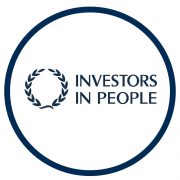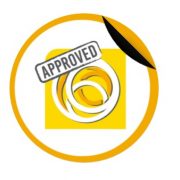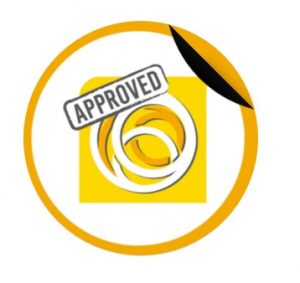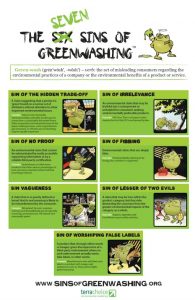A new year’s resolution that you can stick to
I am sure many of you have recently set new resolutions for the year ahead, be they personal goals (e.g. eating healthier or exercising more) or a commitment to make changes on a wider scale (e.g. using less plastic, getting involved in volunteering). However, how many of us actually stick to our resolutions for the whole year (and beyond)??
Perhaps then we should focus more on long term permanent changes to our behaviour, rather than short term ‘fads’ that we are likely to give up on at some point. Given that 2017 saw continued growth in sales of ethical products (up for the 14th year in a row), this gives me hope that perhaps more people will start to focus on their consumption habits and consider the impact of these on the wider world. An easy start would be pledging your commitment to supporting a growing movement of businesses serious about creating positive change.
We launched our Beyond the Badge campaign last year, to help consumers and organisations do good business, by looking out for credible independent labels as proof that a business is living up to its claims, therefore enabling them to make more informed choices.
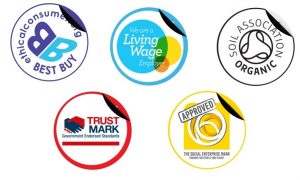 Teaming up with a diverse group of fellow standard-setting bodies that share common values and principles in our approach to accreditation, we aimed to engage consumers with independent standards/labels and educate them on how these can help them to identify businesses that are serious about doing good.
Teaming up with a diverse group of fellow standard-setting bodies that share common values and principles in our approach to accreditation, we aimed to engage consumers with independent standards/labels and educate them on how these can help them to identify businesses that are serious about doing good.
We were excited to recently welcome Investors in People, the standard for people management, as a campaign partner, and would be keen to hear from other organisations interested in getting involved.
Despite the reported increase in ethical consumerism, we are conscious that there is still work to be done in promoting this message on a wider scale, to encourage everyone (both consumers and businesses) to consider the impact of their purchase decisions. This is why we are continuing the campaign into 2018 and I encourage you all to ‘Go Beyond the Badge’ this year, and look out for credible independent labels that actually mean something.
Independent third-party standards play an important role in providing an external endorsement of claims made by businesses – that is, they help consumers know that they can trust a business is committed to doing good. This year, it is one of our own resolutions to push this message into the mainstream, and encourage consumers and businesses across different sectors to use such standards and labels to be sure they are buying from a company they can trust.
I invite you all to commit to a New Year’s resolution you can stick to – you can start by signing the campaign pledge (below) and spreading the word to your contacts.
*We will add you to our supporters mailing list, which we send regular updates to about our network of accredited social enterprises and our accreditation services. You can unsubscribe at any time by clicking the unsubscribe link in the email.

